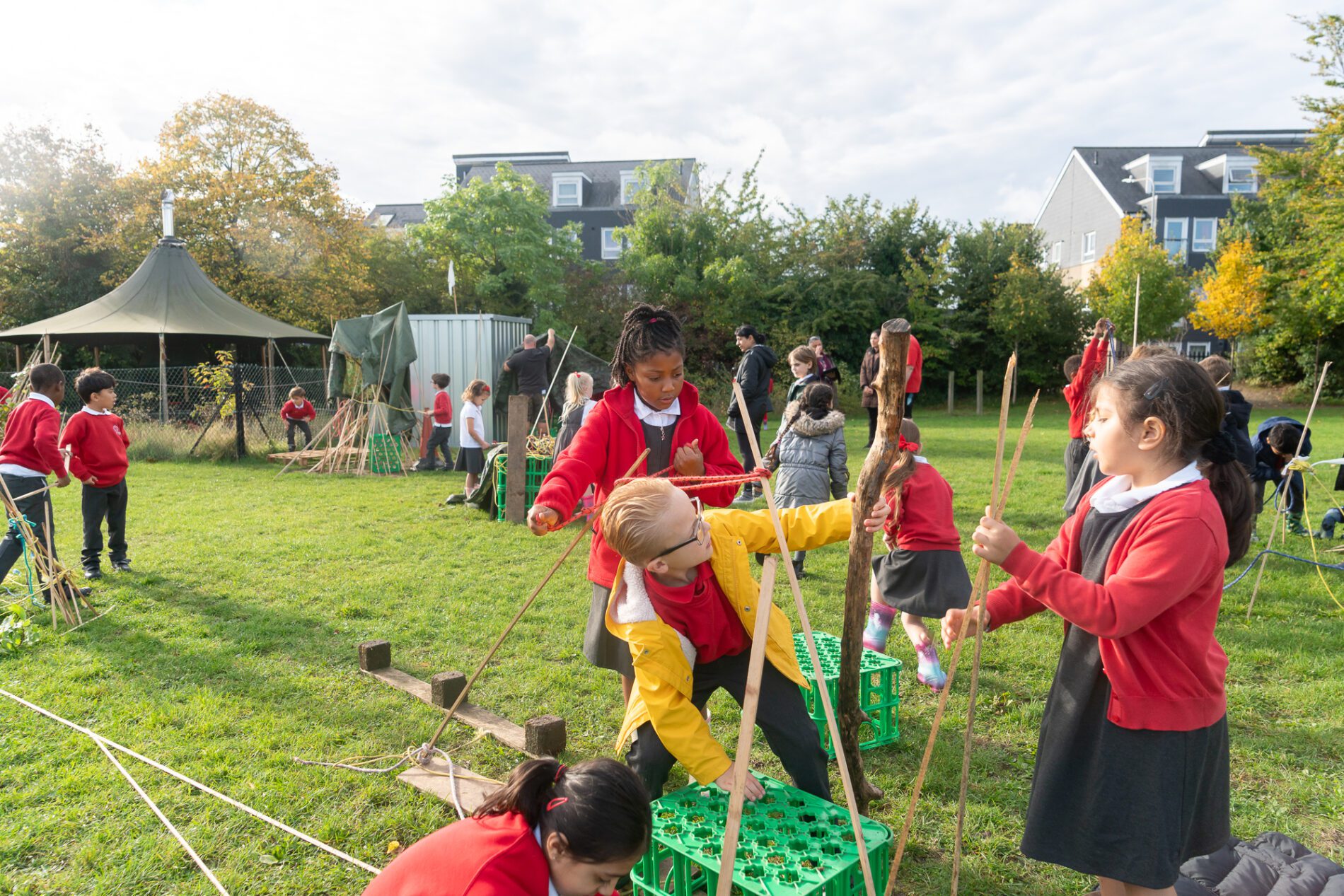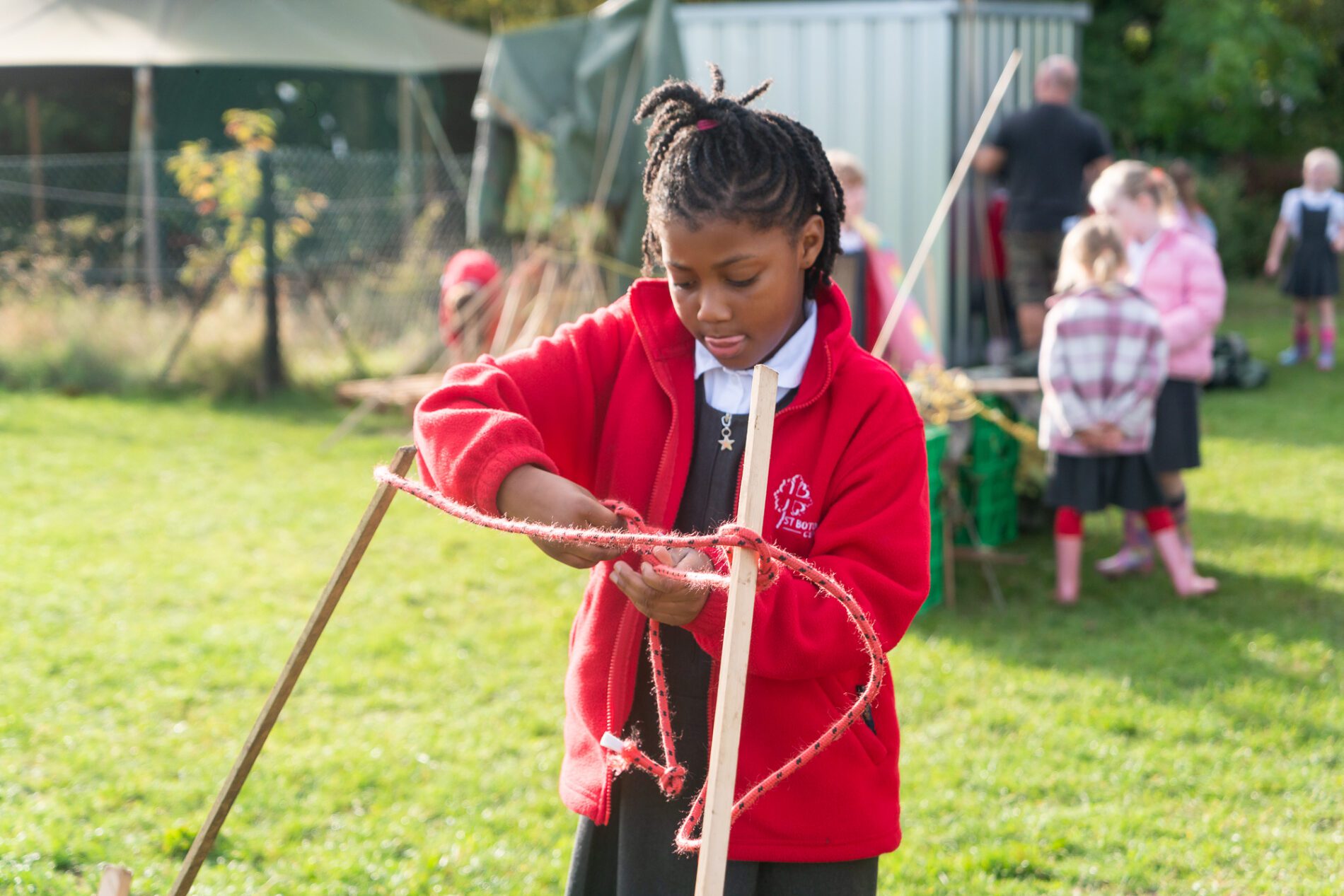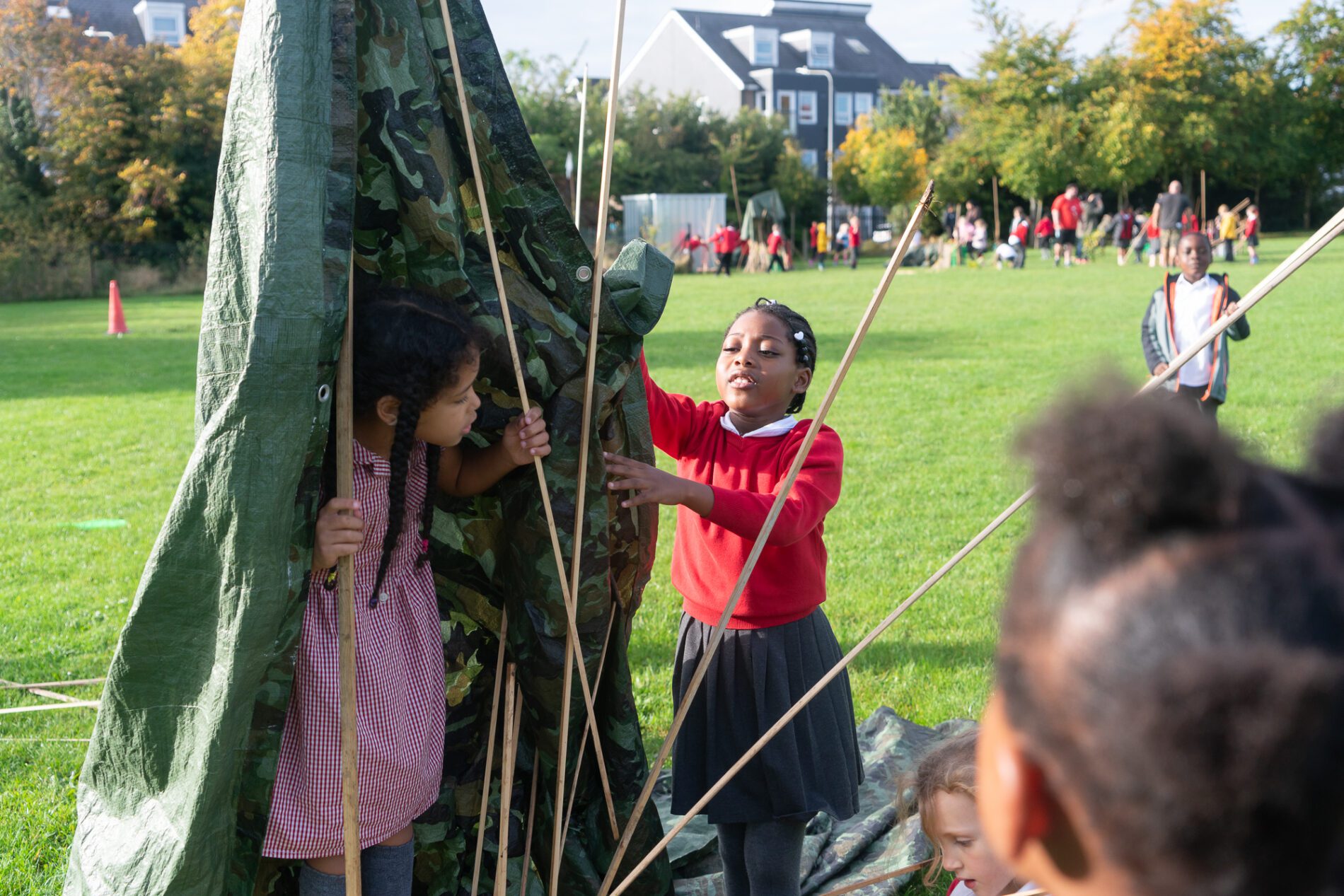Forest School Subject Lead: Mr S Stanton
For any more information on St Botolph’s Forest School Curriculum, please contact the office.
“Forest School is an inspirational process that offers all learners regular opportunities to achieve and develop confidence and self-esteem through hands-on learning experiences in a wooded, natural environment.”
Intent
At St Botolph’s, our aim is to create a child-centred inspirational learning process, that offers opportunities for holistic growth through the facilitation of regular, positive outdoor learning activities. Our Forest School is a long-term program that supports ‘flow’ through play, exploration and supported risk-taking. It develops confidence and self-esteem through learner inspired, hands-on experiences in both our forest and meadow settings.


Implementation
The Forest school process helps and facilitates more than just knowledge-gathering about nature, it helps learners develop socially, emotionally, spiritually, physically and intellectually. It creates a safe, non-judgemental nurturing environment for learners to try new things out and take risks. By attending in all weathers and through changing seasons, Forest School inspires a deep and meaningful connection to the natural world and an understanding of how a learner fits within it. There is no set of prescribed activities yet where possible, links will be made to the learning taking place within the classroom. Sessions are shaped by the learners’ interests and with our approach to ‘risk’, learners constantly expand on their abilities by solving real-world issues, stimulating creative thought, building self-belief and developing resilience. We believe that risk is more than just the potential for physical harm, it is more holistic, understanding that there are risks in everything we do, and that we grow by overcoming these. Forest School, therefore, helps participants to become, healthy, resilient, creative and independent learners.
One of the principles of Forest School is to promote environmental awareness and encourage sustainability. Children are encouraged to respect their environment including the wildlife within it and to be aware of conservation issues of the wild area around them. They use reclaimed, recycled and sustainable resources to maintain and develop the forest school sites. In order to encourage the children to look after the sites, they are always left tidy. Pupils are taught to take care of anything growing within them. The Forest School Leader monitors the sites so that they do not become overused as part of their management plan.
Impact
Forest School lessons at St Botolph’s encourage our pupils to:
- be responsible for and respect their local community and environment. This gives them a sense of belonging and ownership of the place in which they learn and live.
- grow in confidence as a result of the freedom, time and space they are given in their learning allowing them to demonstrate independence at their own rate.
- strengthen their social skills when working together as a group through activities promoting teamwork and communication and participating in play.
- develop physical stamina and gross and fine motor skills.
- improve communication skills and language development. This builds their self-esteem and confidence amongst their peers. It also helps build parental engagement with a child’s learning as they take their experiences home to share with friends and family.
Forest School leaders and teachers measure the impact of our curriculum through observations during Forest School sessions, images and videos of the children’s practical learning and pupil voice. Forest School is not just beneficial to children; it is also beneficial to teachers; observing their class in a different setting allows them to gain a new perspective and understanding of their class which they can then use to support the learning within the classroom.


Forest School Progression
SEND Information
Our SEND children are given the necessary support in class to fully access the Art & Design curriculum. If necessary, learning is adapted to support SEND children, so they have equal opportunities to be confident in approaching any problems faced. All teaching staff offer an adaptive teaching style to ensure all children can access their learning. This may include; providing scaffolds, pre-teaching, other support and intervention, as outlined in the Kent Mainstream Core Standards.

